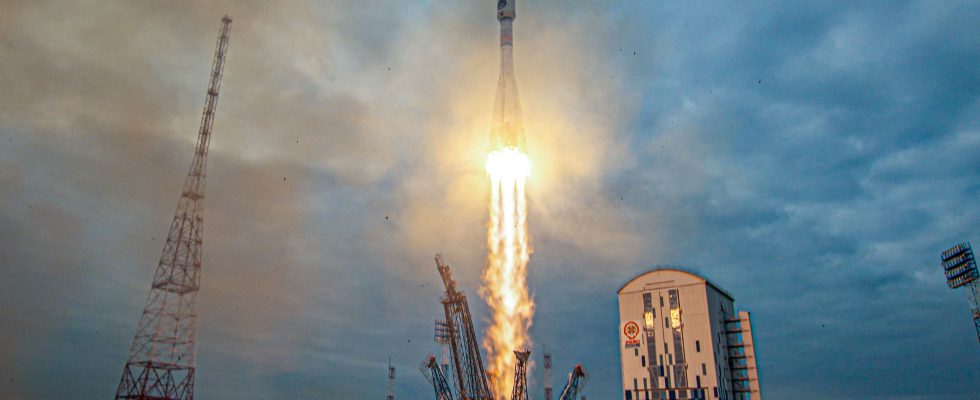Luna-25, the first probe to be launched by Russia to the Moon since 1976, crashed on the Moon following an incident on Saturday August 19 during a maneuver prior to its landing, announced the Roscosmos space agency this Sunday. This failure comes at a time when Russian President Vladimir Putin had promised to continue the Russian space program despite funding problems, corruption scandals and the isolation of his country due to the conflict in Ukraine.
Luna-25’s journey was expected to last between four and five days, ending with a landing “in difficult terrain”. The probe had been successfully placed in lunar orbit on Wednesday, after taking off on the night of August 10 to 11 from the Russian Far East. His moon landing was scheduled for Monday. Once on the Moon, this 800-kilogram robot should have “sampled and analyzed the soil and carried out long-term scientific research” for at least a full year, according to information from the Russian space agency in its official press release.
New failed momentum for Russian space
After “an impulse given to form its elliptical pre-moon landing orbit”, “around 2:57 p.m., communication with Luna-25 was interrupted” on Saturday, Roscosmos explained. “The measures taken on August 19 and 20 to search for the device and make contact with it did not yield any results,” the space agency lamented.
Before adding: “According to the preliminary results” of the investigation, the device “ceased to exist following a collision with the lunar surface”. “An interministerial commission” will be responsible for understanding “the reasons” for the incident which caused “the loss” of Luna-25, the Russian space agency also announced, which did not give possible causes for the problem. technique occurred.
The Luna-25 mission, intended to give new impetus to the Russian space sector, was announced as “risky” by the very admission of the boss of Roscosmos, Yuri Borissov. Faced with Vladimir Putin last June, he declared: “The probability of success of such missions is estimated at around 70%”. Since the fall of the USSR, Moscow has struggled to innovate in the field of space exploration. Its programs now face competition not only from state actors but also from private initiatives, such as billionaire Elon Musk’s Space X.
